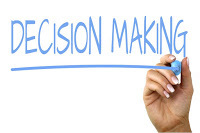Marty Nemko's Blog, page 259
March 20, 2019
In Praise of the Imposter Syndrome: "Accept yourself" is a destructive fad.
 Today’s motivational gurus are hell-bent on boosting our self-esteem: “We’re okay just as we are.” “We are worthy just by virtue of being human.” “There's genius in all of us!" Hah!
Today’s motivational gurus are hell-bent on boosting our self-esteem: “We’re okay just as we are.” “We are worthy just by virtue of being human.” “There's genius in all of us!" Hah! Thinking you’re great is a fast way to ensure you stagnate, probably in mediocrity...or worse—There’s no need to work on growing if you already think you’re fine.
A common manifestation of low self-esteem is the Imposter Syndrome: You have a degree that says you’re a qualified professional but you feel you aren’t one. That’s often an accurate assessment because school-based training, often longer on theory and arcana than on practice and essentials, can easily leave you less than real-world competent. That’s why, for example, many law firms provide extensive post-law-school training for their newly hired lawyers.
The answer to the imposter syndrome is not to dismiss it. My PsychologyToday.com article today tells what to do instead.
Published on March 20, 2019 23:20
March 18, 2019
The Fun and Benefits of Type-A Behavior
 A 1959 journal article reported that Type A behavior—what’s often called “hurry sickness” and a tendency to get angry, increases risk of cardiovascular disease.
A 1959 journal article reported that Type A behavior—what’s often called “hurry sickness” and a tendency to get angry, increases risk of cardiovascular disease. But a more recent review of the literature in the American Journal of Public Health found that a number of follow-up studies failed to confirm the claim. The authors of that review concluded that studies prominently reporting that link between Type-A behavior and heart disease were funded by the tobacco industry as a way to deflect attention from cigarette smoking causing heart disease.
It may nevertheless still be that, when the, ahem, smoke clears, Type-A behavior, especially its angry variant, will be shown to at least modestly contribute to cardiovascular disease. And there’s little doubt that an angry personality usually results in ostracism and less influence.
But rather than dismissing Type-A behavior as such a bad characteristic that all efforts should be made to quell it, it might be worth considering its upsides. I outline them in my PsychologyToday.com article today.
Published on March 18, 2019 21:06
Knowing When to Decide
 My just-concluded career counseling session motivated me to write my PsychologyToday.com article today.
My just-concluded career counseling session motivated me to write my PsychologyToday.com article today. My client has a PhD and is looking for a post-doc in a narrow specialty. He believes that eventually, he needs to reach out to some of the field’s heavy hitters to get guidance as to where to turn but, week after week now, he continues to do more research to try to figure out who the right people are. He’s still not sure. He admits this is a manifestation of his lifelong problem with excessive rumination and inadequate action.
By the end of the session, he felt far more optimistic he can ameliorate his problem. My PsychologyToday.com article today. offers lessons he learned in that session. They're applicable to personal as well as professional life.
Published on March 18, 2019 13:37
March 15, 2019
Create Your Solo Show: How, and why you should even if you never perform it.
 One of my life’s more rewarding experiences has been to create my autobiographical one-man show, Odd Man Out.
One of my life’s more rewarding experiences has been to create my autobiographical one-man show, Odd Man Out.My PsychologyToday.com article today explains, step-by-step, how I did it and you might too.
Published on March 15, 2019 20:31
March 14, 2019
Choosing a Career: An unconventional approach
 Most people end up in their career sub-optimally:
Most people end up in their career sub-optimally:They fall into their careers by chance.They pick from a few common choices: doctor lawyer, teacher, electrician, psychologist, etc.With a career advisor, human, video, computer, or text, they inventory, abilities, skills, interests (if they have them, passions), and values.The latter approach would seem optimal but it’s not:
It too often yields unrealistic goals—For example, the person dreams of making a solid living as an environmentalist, performer, sports executive, or visual artist. Unless you’re brilliant, talented, connected, or dogged, ideally all the above, they'll why the words “starving” and “artist” so often adjoin.Most careers don’t require a narrowly constrained set of attributes. For example, there are introverted and extroverted psychotherapists, brilliant and merely workmanlike ones, sciencey and feeling-oriented ones.There are tens of thousands of careers, most that have many variants. Even with a computer to screen careers, you’ll be (not very validly) matched to a few from just a few hundred. Much better fits could remain buried.A better way?
In my PsychologyToday.com article today, I offer an approach that would seem to balance ease with accuracy.
Published on March 14, 2019 00:32
March 12, 2019
In Search of Wisdom: My 13 favorite ideas.
 It would be hubristic of me to assert that these attempts at wisdom have reached that high bar, but my Psychology Today article today offers my best shots.
It would be hubristic of me to assert that these attempts at wisdom have reached that high bar, but my Psychology Today article today offers my best shots.
Published on March 12, 2019 00:21
March 10, 2019
Developing a Winning Personality
 Even some brilliant people suffer professionally and personally from the lack of a likeable personality.
Even some brilliant people suffer professionally and personally from the lack of a likeable personality.And some such people don’t care: “I don’t want to play their silly games.” But if you do care to, as the classic book, said, “win friends and influence people,” perhaps one or more of the tips I offer in my PsychologyToday.com article today will help:
Published on March 10, 2019 13:42
March 8, 2019
Making Remote Work Work
 Whether you call in telecommuting or remote work, it would seem to be a slam-dunk idea. Workers avoid painful commutes, can work in their comfies, and there’s no fire-breathing boss looking over their should to be sure they didn’t dare email their honey or check the March Madness bracket.
Whether you call in telecommuting or remote work, it would seem to be a slam-dunk idea. Workers avoid painful commutes, can work in their comfies, and there’s no fire-breathing boss looking over their should to be sure they didn’t dare email their honey or check the March Madness bracket. Employers benefit by needing less office space, they can recruit to find the best workers even if far-flung rather than just locally. And employers can attract and retain better employees who are in-demand enough to avoid jobs requiring an ever longer, stressful commute, after which employees arrive at work half-exhausted before they even start work.
Yet most employers still demand butts in the office. Why and what can be done to make remote work for employers and employees. I offer suggestions in my PsychologyToday.com article today.
Published on March 08, 2019 20:24
March 7, 2019
Why Career Counseling Clients Fail
 How-to writers tend to present success stories. I’m guilty of that. But of course, much can be learned from failure.
How-to writers tend to present success stories. I’m guilty of that. But of course, much can be learned from failure. So in my PsychologyToday.com article today, I describe common ways in which career counseling clients fail and what individuals and counselors can do to help.
Published on March 07, 2019 22:45
March 6, 2019
Critical Incidents in Parenting
 Even with a typical child, parenting is hard and important. It’s ironic that schools prefer to teach geometry and chemistry but not parenting.
Even with a typical child, parenting is hard and important. It’s ironic that schools prefer to teach geometry and chemistry but not parenting.My PsychologyToday.com article today offers thoughts and sample dialogues on common critical incidents in parenting. After, I list some undergirding principles.
Published on March 06, 2019 21:12
Marty Nemko's Blog
- Marty Nemko's profile
- 4 followers
Marty Nemko isn't a Goodreads Author
(yet),
but they
do have a blog,
so here are some recent posts imported from
their feed.



